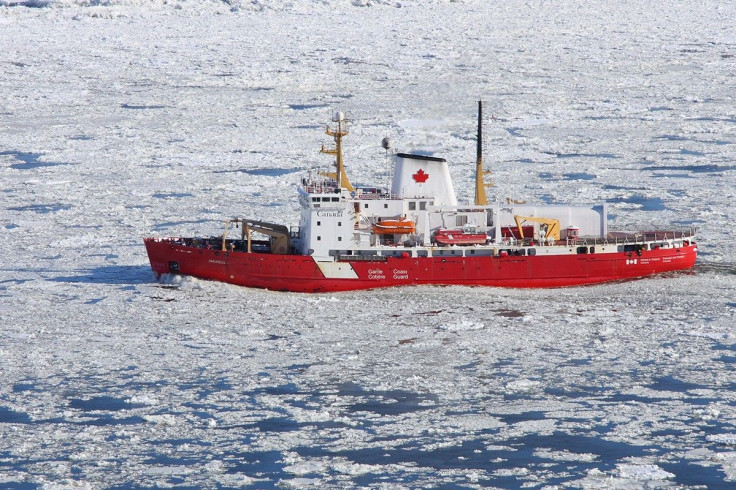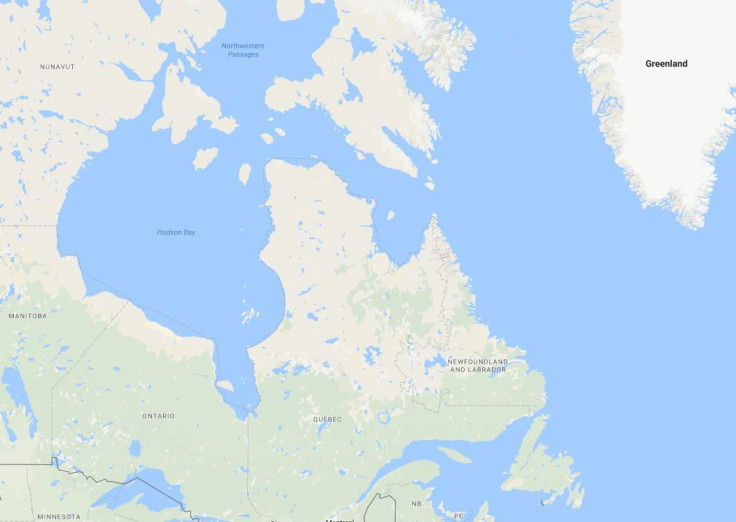Climate Change Effects: Dangerous Arctic Ice Conditions Cancel Environment Science Research Trip

Scientists studying climate change say they have had to cancel part of their research because of global warming.
Their icebreaker ship, CCGS Amundsen, specifically would have encountered “the southward motion of hazardous Arctic sea ice,” the University of Manitoba said in a statement. That Canadian research vessel, after handling the rough conditions on its way north to its destination, would have arrived at the location too late to perform the scheduled research.
Read: Arctic Winds Are Changing, But Polar Bears Need Them to Hunt Seals
The treacherous ice is canceling the first leg of this year’s research expedition, which includes the efforts of several Canadian universities and is part of a four-year project called the Hudson Bay System Study. The $17 million project collaborates with the Canadian Coast Guard to deploy the icebreaker and is geared toward understanding how climate change affects Arctic ecosystems in the water and along the coast as well as northern communities.
The University of Manitoba said the coast guard had planned to deploy the ship earlier to perform security operations off the coast of Newfoundland and then depart for the research site at Hudson Bay, but “the conditions required much more extended support than anticipated” and the coast guard had to hold on to the icebreaker for longer, in part to meet demand for search and rescue vessels.
The ice conditions are so severe, the coast guard recently announced the government was providing assistance to the fishers in Newfoundland and Quebec who have been unable to fish and have thus lost income.

Newfoundland is a coastal province in eastern Canada. To reach Hudson Bay from there, the icebreaker would have had to go up along the coast of the Atlantic Ocean and head west past Quebec through the water passage called the Hudson Strait before heading into the bay, which borders Quebec, Ontario, Manitoba and the expansive Nunavut territory.
While it is connected to the Atlantic Ocean via the Hudson Strait, the bay is connected to the Arctic Ocean through the Foxe Channel and Foxe Basin in Nunavut.
Hudson Bay houses a diverse ecosystem, with various species of fish, seals, walruses, polar bears, killer whales, dolphins, birds and even some mammals.
“A second week of delay meant our research objectives just could not be safely achieved — the challenge for us all was that the marine ice hazards were exceedingly difficult,” chief expedition scientist David Barber said in the statement.
Read: Penguin Extinction Is About More Than Climate Change
But he and his team confirmed a lot of the sea ice that was causing such a hazard in these locations along the southern half of Canada actually came from the “high Arctic.”
“Climate-related changes in Arctic sea ice not only reduce its extent and thickness but also increase its mobility, meaning that ice conditions are likely to become more variable and severe conditions such as these will occur more often,” Barber explained.
A separate leg of the expedition is still expected to begin in July.
© Copyright IBTimes 2024. All rights reserved.











